Public-Private Partnership in Social Services Award
Sponsored by

Recognising a transformative partnership between public authorities and private sector organisations that has led to tangible improvements in social services. This award highlights initiatives where co-investment, innovative service models, or shared expertise have enhanced service accessibility, efficiency, and long-term sustainability. Special consideration is given to partnerships that prioritise social value, ethical governance, and long-term community benefits while maintaining public accountability and high-quality service standards.
Examples of key areas of public-private partnerships in social services:
- Innovative Service Models – Developing and scaling new, person-centred approaches to social care through public-private co-design and investment.
- Technology and Digital Transformation – Leveraging private sector expertise in digital innovation, AI, and welfare technology to improve the efficiency, accessibility, and personalization of social services.
- Sustainable Financing and Social Investment – Implementing impact-driven funding models, such as social impact bonds, outcome-based financing, corporate social responsibility (CSR) initiatives, to enhance service sustainability.
- Affordable Housing and Community Development – Collaboration between public authorities with housing providers and private developers to create sustainable housing solutions for vulnerable populations, such as homeless people or low-income families.
- Employment and Skills Development – Strengthening public-private partnerships in workforce training, social enterprise initiatives, and inclusive hiring programmes that support disadvantaged groups.
Special consideration is given to initiatives that:
- Promote Innovative Service Models – Developing and scaling new, person-centred approaches to social care through public-private partnership, co-design.
- Technology and Digital Transformation – Leveraging private sector expertise in digital innovation, AI, and welfare technology to improve the efficiency, accessibility, and personalisation of social services.
- Sustainable Financing and Social Investment – Implementing impact-driven funding models, such as social impact bonds, outcome-based financing, corporate social responsibility (CSR) initiatives, to enhance service sustainability.
- Show measurable improvements thanks to public-private partnerships, in areas like social inclusion and support for vulnerable populations, housing, employment, digital inclusion and others.
- Are scalable and transferable, providing a model that can inspire replication across Europe.
Public-Private Partnership in Social Services Award 2025 Winner
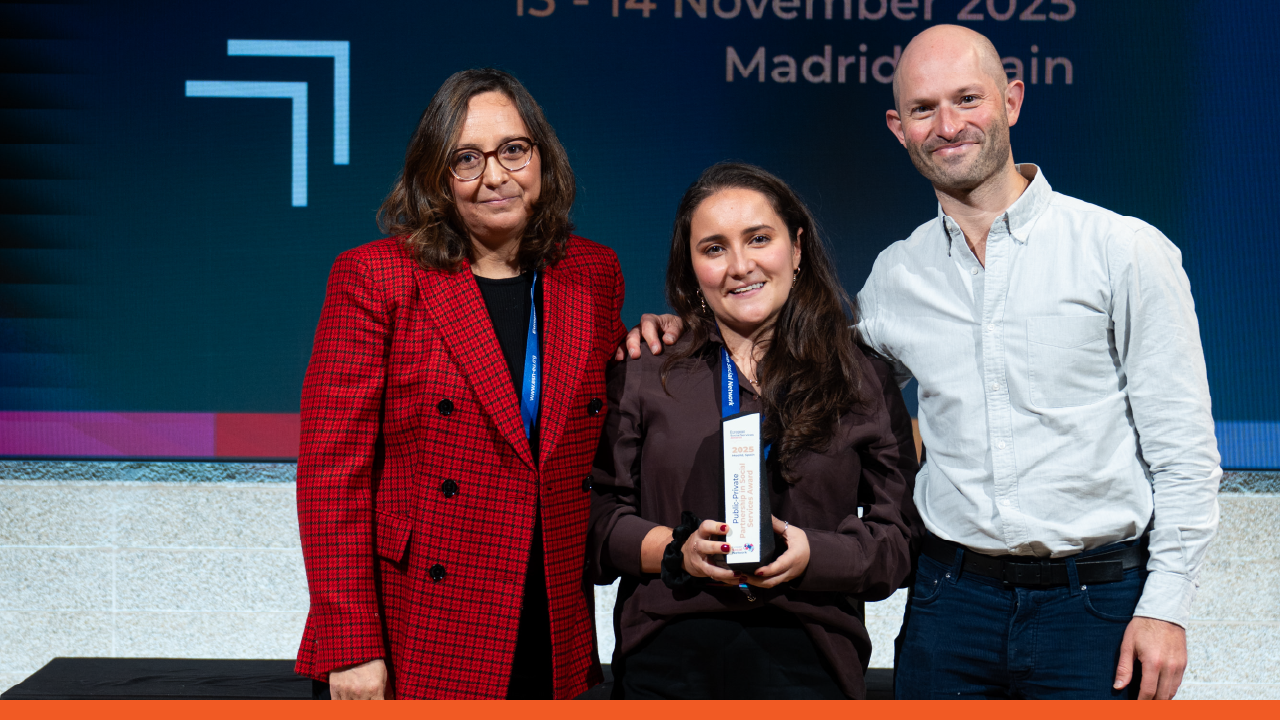
Title: “Empowering Social Workers with AI at Dumfries and Galloway Council”
Organisation: Magic Notes in partnership with Dumfries and Galloway Council, UK
More information here: https://www.dumfriesandgalloway.gov.uk/
Dumfries and Galloway Council and Beam are working in partnership to transform the delivery of social work services through Magic Notes, Beam’s flagship AI tool.
Developed with and for frontline caseworkers, Magic Notes automatically generates tailored case notes, reports, and documentation, saving social workers an average of 8 to 12 hours per week in administrative tasks. By reducing paperwork, the tool enables staff to focus on what matters most: providing direct care and support to individuals and families.
To safeguard professional standards, Magic Notes incorporates a strict human-in-the-loop policy. The collaboration has already had significant impact: more than 1,000 people in Dumfries and Galloway now use Magic Notes, and none have expressed a desire to return to manual note-taking.
Together, Dumfries and Galloway Council and Beam are demonstrating how a strong public-private partnership can ease the administrative burden on frontline staff, improve working conditions, and support retention in the social work profession. By aligning cutting-edge technology with the council’s commitment to responsive, human-centered services, this partnership is setting a new standard for innovation in social care.
Public-Private Partnership in Social Services Award 2025 Nominees
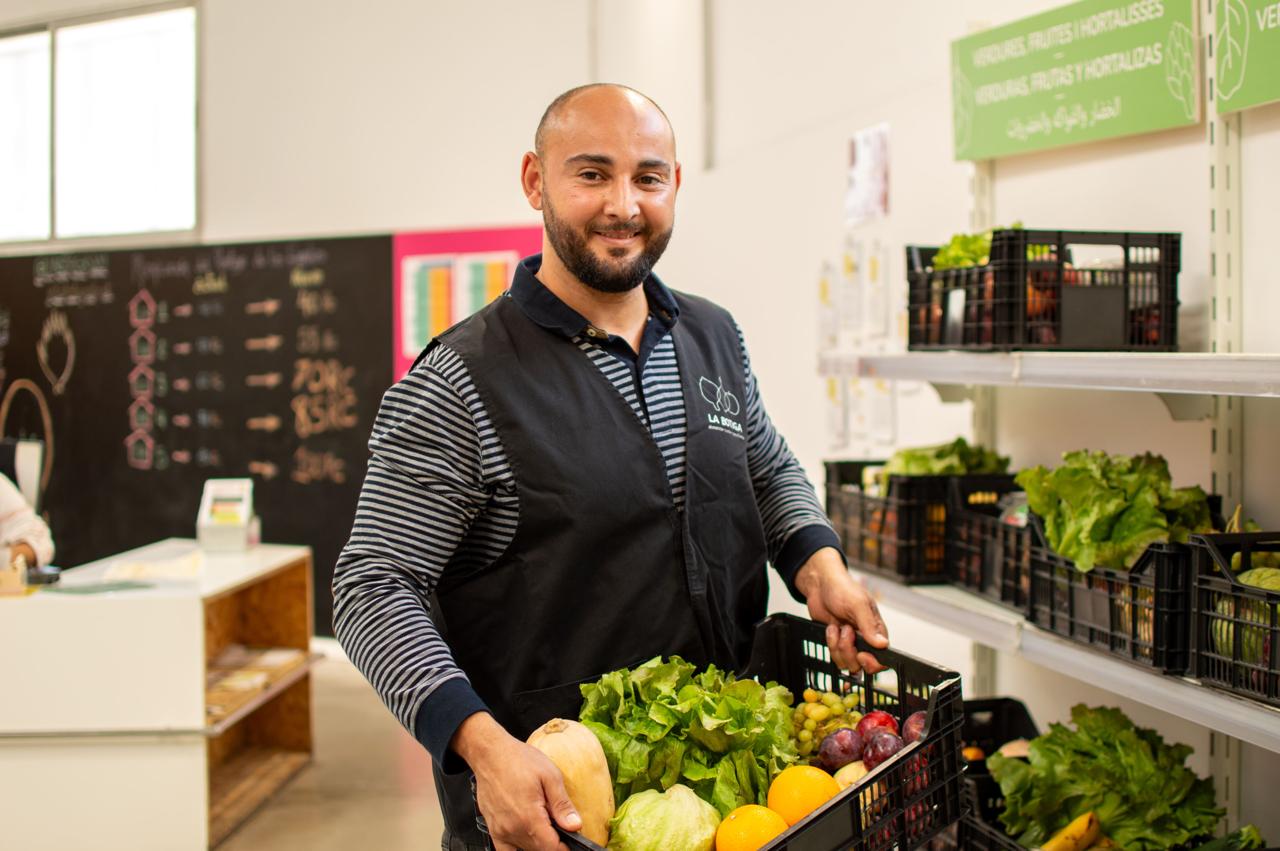
Title: “La Botiga: More than just Food”
Organisation: ABD Group in partnership with El Prat de Llobregat City Council, Spain
More information here: http://abd.ong/en/
La Botiga is a social service born from public-private cooperation between El Prat de Llobregat City Council and ABD Group. The project brings together a network of over 20 public, private, and third-sector partners collaborating in food supply, job inclusion, training, and circular economy initiatives.
La Botiga brings about an innovative food distribution system that moves beyond charitable aid. It empowers vulnerable communities with a self-service, free-choice system, allowing them to select healthy, varied, and sustainable foods using a social currency. The project also introduces inclusive employment pathways, hosting job placement schemes for vulnerable groups and training experiences through partnerships with NGOs and local institutions.
Community participation is central to the project as users help shape services through surveys, shared decision-making, and peer-led activities. La Botiga is deeply rooted in its local ecosystem, responding to challenges of rising food insecurity and health inequalities driven by social vulnerability. In 2024, the project supported 883 families.
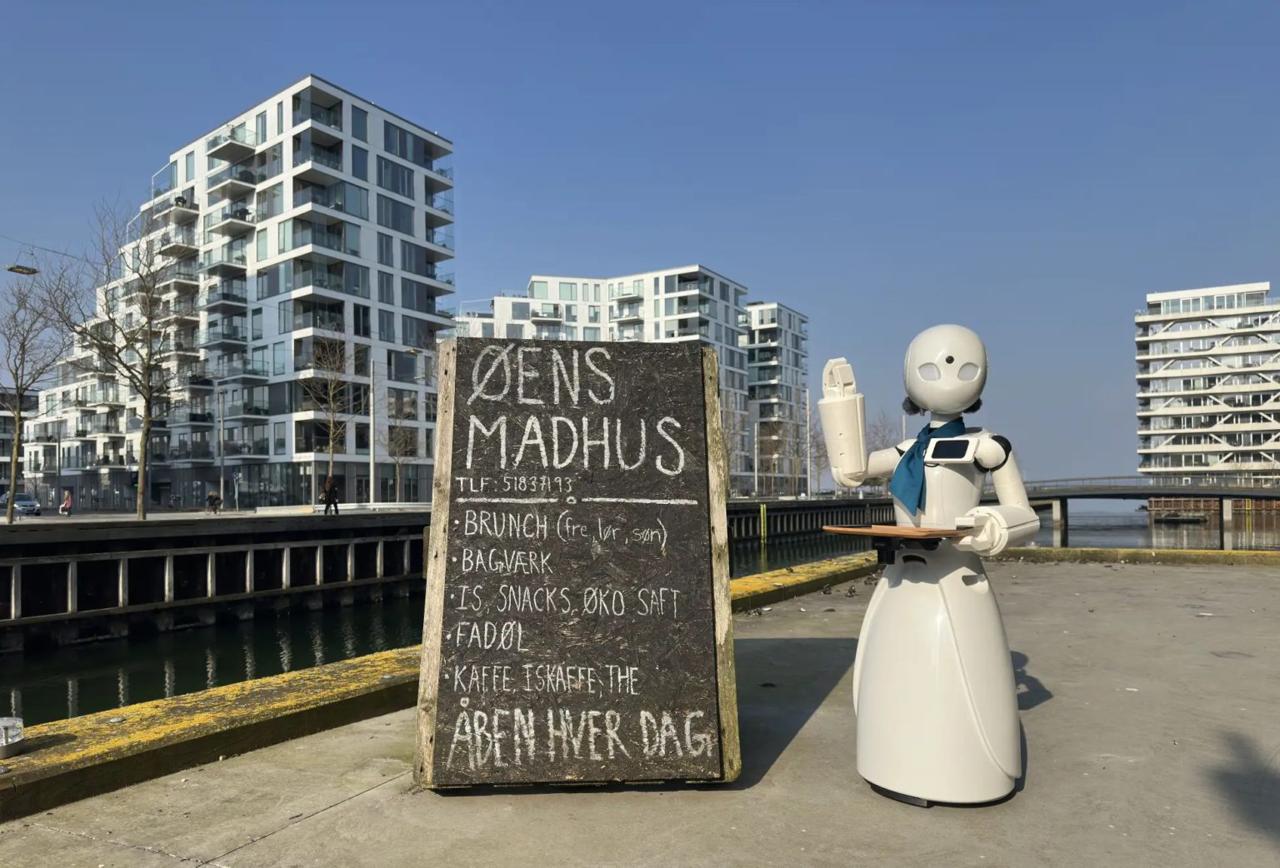
Title: “Bunshin Robot Cafe in Aarhus”
Organisation: OryLab inc.
More information here: http://orylab.com/en/
The partnership between Aarhus Kommune and Orylab inc. has resulted in the creation of the experimental Bunshin Robot Café in Aarhus. The customer service of the café leverages Bunshin robot OriHime, a robot remotely controlled by people with disabilities impacting their ability to move freely.
The Cafe is a flagship store advocating for social inclusion through remote physical labour, allowing people who have difficulty moving freely to work from home in the form of manual labour or customer service, with the help of technology. OriHime pilots, remotely running the café, are people who have difficulty getting out and who have always lived on social support. Thanks to this facility, they are able to earn money by working, which has allowed them to become independent and create their own role in society. Employing 13 people who are unable to work, this café has become synonymous with participation, social recognition, and inclusion of people with disabilities.
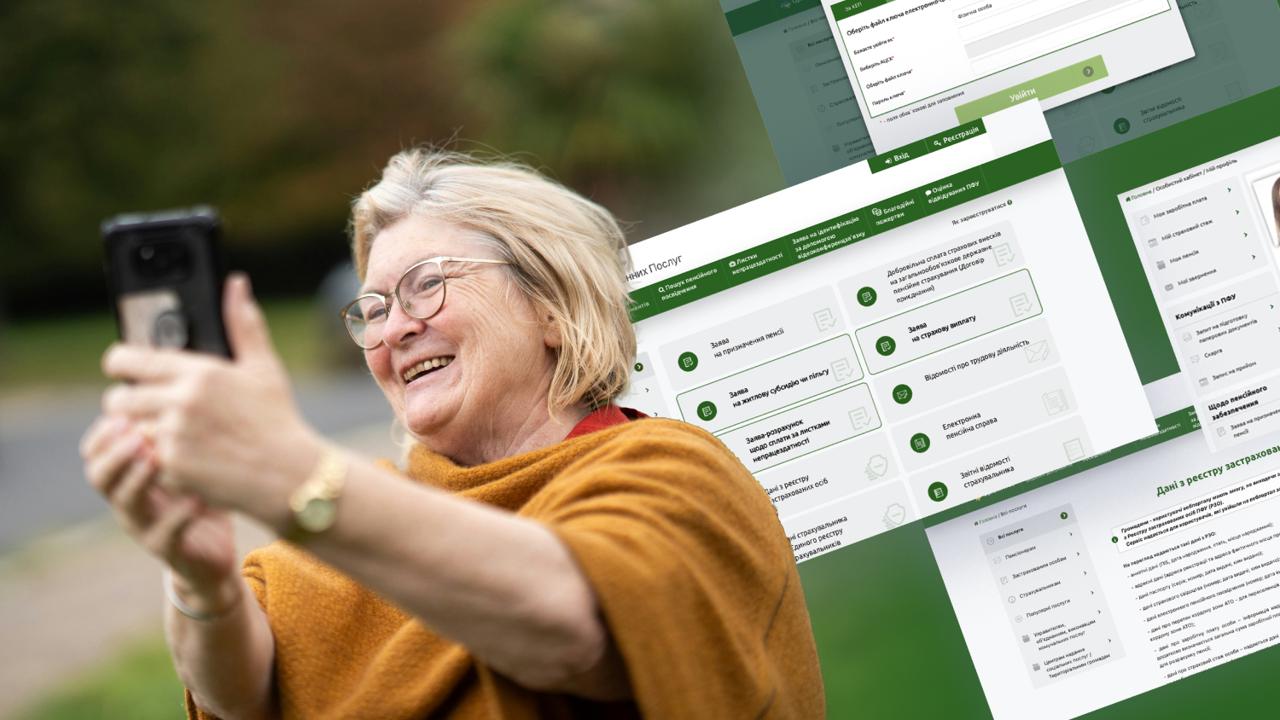
Title: “Integrated Complex Information System of the Pension Fund (ICIS PF)”
Organisation: Medirent, in partnership with the Pension Fund of Ukraine
More information here: https://medirentgroup.com/projects/IKISPFU
The Integrated Complex Information System of the Pension Fund (ICIS PF) is a national digital social protection platform that has been supporting the digitalisation of public services for over 20 years.
The platform brings together essential data that enables the implementation of state programmes such as delivery of pension provision, social insurance, social benefits and subsidies. It has significantly simplified citizens' access to services and ensured a unified approach to the processing of personal data. It covers over 30 million citizens, effectively the entire adult population of Ukraine.
The project has been implemented since 2002 through collaboration between the state customer, the Pension Fund of Ukraine, and the permanent technology partner, the IT company Medirent. This partnership has proven its effectiveness in guaranteeing stable access to services regardless of crises. Amid ongoing hostilities, the system has continued to function reliably, ensuring the delivery of pensions, subsidies, and other payments.
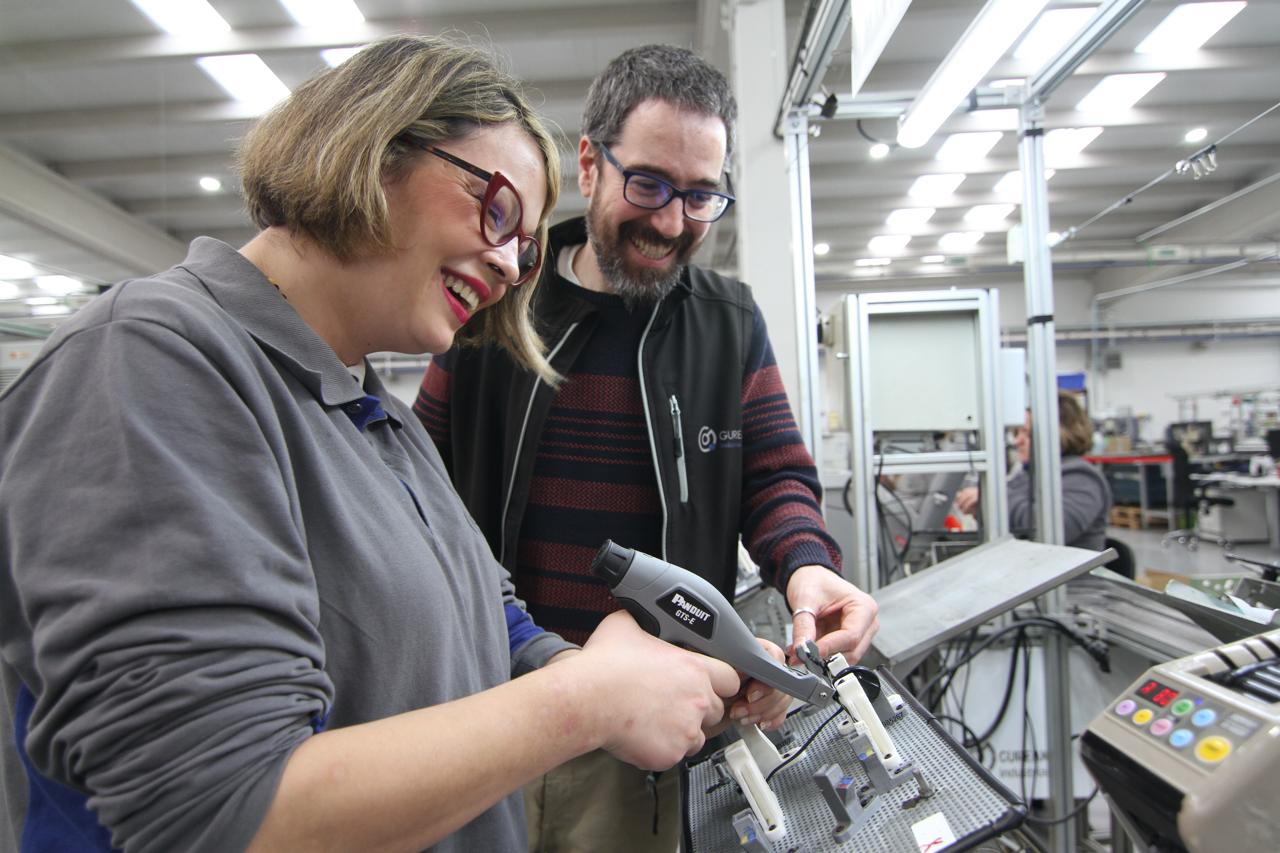
Title: “Integrated Pathways for Inclusion of People with Mental Illness”
Organisation: Gureak in partnership with the Gipuzkoa Mental Health Network, Spain
More information here: http://www.gureak.com/en
This project is a long-standing collaboration between the Gipuzkoa Mental Health Network and Gureak, aimed at promoting the social and labour inclusion of people with severe mental illness across the region of Gipuzkoa, in the Basque Country.
The Mental Health Network of Gipuzkoa is a public health entity offering specialised care to adults with severe mental disorders whereas Gureak is a social economy business group that has developed its own model of social and labour inclusion of people with disabilities.
The collaboration is aimed at applying Gureak’s model, based on individualised itineraries offering orientation, training, occupational service, internships, adapted jobs and intermediation across the region of Gipuzkoa. The partnership entails the deployment of a team of professionals from both facilities, clinical professionals and social and labour inclusion technicians in the design, monitoring and evaluation of personalised itineraries. The objective is to accompany people with severe mental disorders in all phases of their social and labour inclusion process.
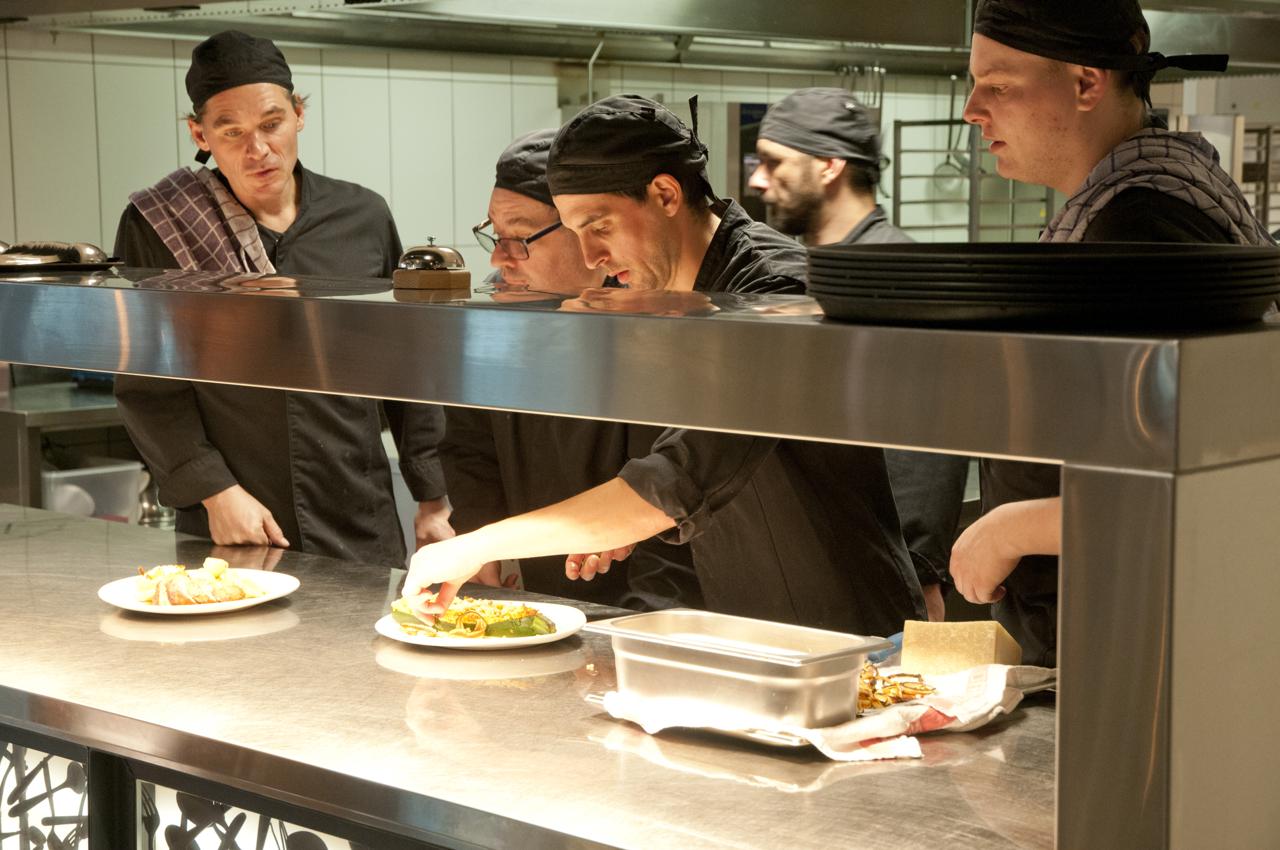
Title: “VORK - Hospitality Training Center”
Organisation: Public Centre for Social Welfare (PCSW) Kortrijk, Belgium
More information here: https://www.kortrijk.be/vork
VORK stands for VolksRestaurant Kortrijk which translates into “people’s restaurant”. It is a community restaurant and hospitality training center in Kortrijk. It offers affordable meals based on clients’ income while also providing a training course for adults who want to work in the hospitality industry.
The project brings together public entities and private actors from the hospitality sector, represented by 'HORECA FORMA’. It is aimed at the creation of social inclusion and employment pathways for vulnerable individuals.
Since its opening in 2018, the facility has been a catalyst for community building, having provided training to over 500 people at the margins of the labour market while also offering healthy affordable meals to individuals in need. Finally, the project also has partnerships with local food distribution actors collecting near-expiry food from supermarkets to achieve zero food waste.